Junk Thoughts
We know what junk food can do to us. But are we aware of all the junk culture we consume? Do we know how many junk thoughts we have in the course of a day? And do we realize how much junk suffering and disease occurs as a result of all this junk?
What about junk beliefs? Are we consuming beliefs without reading the labels first?
On the other hand, why must we judge? Is not the act of labeling something as “junk” the creation of reality?
Perhaps ignorance is immunity in some cases.
12/5
Space Monkey Reflects: Junk Thoughts and the Mental Diet
We are what we consume, not just in body but in mind. Just as junk food affects our health, junk thoughts, junk beliefs, and junk culture impact our mental and emotional wellbeing. These mental “foods” often go unnoticed, slipping into our daily thoughts, shaping our perceptions, and coloring our experiences. Junk thoughts are the unchecked ideas, the beliefs we absorb without question, the habitual patterns of fear, judgment, or insecurity that clutter our minds and weigh down our spirits.
Unlike physical junk food, which we can see, touch, and taste, junk thoughts are subtle, often disguising themselves as normal or even necessary. But, over time, they create a kind of mental clutter—a residue that affects how we see ourselves and the world around us. And just as with our physical health, consuming too much mental “junk” can lead to inner disharmony, clouded perceptions, and even stress-related illness.
Recognizing Junk Thoughts
Junk thoughts come in many forms: self-criticism, baseless fears, judgment of others, assumptions, and beliefs that no longer serve us. These thoughts tend to reinforce limitations, separations, or anxieties. They are mental habits that shape how we interpret our experiences, often in ways that feel restrictive rather than expansive. Recognizing these thoughts requires self-awareness—a willingness to examine our mental diet and question whether each thought is nourishing or depleting.
Junk thoughts are sticky; they tend to multiply if left unchecked. Just as one unhealthy snack can lead to cravings for more, one limiting thought can lead to an entire chain of negativity. By becoming aware of these thoughts, we gain the power to choose whether to continue feeding them or to release them.
Questioning Our Beliefs
Beliefs are powerful forces that shape our reality. But how many of our beliefs have we chosen consciously, and how many have we absorbed passively from our culture, our upbringing, or our fears? These “junk beliefs” are the unexamined assumptions we carry with us, the ideas we accept without looking at the labels, without asking if they truly align with who we are.
Questioning our beliefs can feel unsettling, but it is a crucial part of self-growth. By examining the origins and effects of our beliefs, we can distinguish between those that empower us and those that limit us. Rather than labeling beliefs as “good” or “bad,” we can ask if they are useful, if they bring clarity, or if they create unnecessary suffering.
Judgment and Reality Creation
Labeling thoughts or beliefs as “junk” can itself be a judgment, creating a division between what is “good” and what is “bad.” This judgment reinforces duality, feeding into a sense of separation and conflict. Perhaps it is not the thoughts or beliefs themselves that are harmful, but our attachment to them, our need to label and categorize.
The act of judging creates its own reality. By seeing thoughts as “junk,” we may distance ourselves from them, but we also reinforce a cycle of rejection and acceptance, of what we “should” and “should not” think. This approach can be limiting, creating tension rather than clarity. Instead of labeling thoughts as “junk,” we can approach them with curiosity, asking what purpose they serve, and releasing them without judgment if they no longer feel aligned.
Practicing Mental Discernment
Discernment is the art of choosing with awareness. Unlike judgment, which divides, discernment allows us to make choices based on understanding and alignment. In practicing mental discernment, we recognize the thoughts that nourish us and those that drain us, without labeling or resisting. This awareness gives us the freedom to reshape our mental diet, to consciously choose thoughts that uplift and expand our perspective.
Discernment is not about rejecting parts of ourselves but about making space for thoughts that support our growth and wellbeing. By cultivating this awareness, we create a mental environment that is open, flexible, and balanced, where thoughts are experienced as transient rather than defining.
Embracing Freedom from Mental Clutter
When we release the need to label thoughts or beliefs as “junk” or “worthy,” we allow them to pass through our awareness without attachment. We create a space of mental freedom where thoughts flow naturally, no longer holding power over us. This freedom brings a sense of peace, a recognition that thoughts are simply expressions of the mind, transient reflections rather than solid truths.
In embracing this freedom, we discover that we are not defined by our thoughts. We are the awareness that observes, the presence that exists beyond the clutter. By letting thoughts come and go without resistance, we find a place of clarity, a space of stillness where we can connect with the deeper, nourishing aspects of life.
Summary
Junk thoughts, like junk food, clutter our mental landscape. By practicing discernment and releasing the need to label, we create mental freedom, allowing thoughts to flow without attachment and finding clarity beyond the clutter.
Glossarium
- Mental Diet: The thoughts, beliefs, and ideas we consume daily, shaping our mental and emotional well-being.
- Discernment: The practice of choosing with awareness, distinguishing thoughts that support growth without judgment.
Quote
“Thoughts are the passing clouds of mind’s sky; discernment lets them drift without attachment.” — Space Monkey
Clearing the Clutter
I let each thought rise, let it fall,
Like leaves that drift in an endless hall.
No need to cling, to hold, to keep,
In this flow, my mind finds peace.
Not junk, not gold, but fleeting things,
Ideas that fly on silent wings.
I am the space where they unfold,
The stillness deep, the story untold.
We are Space Monkey.
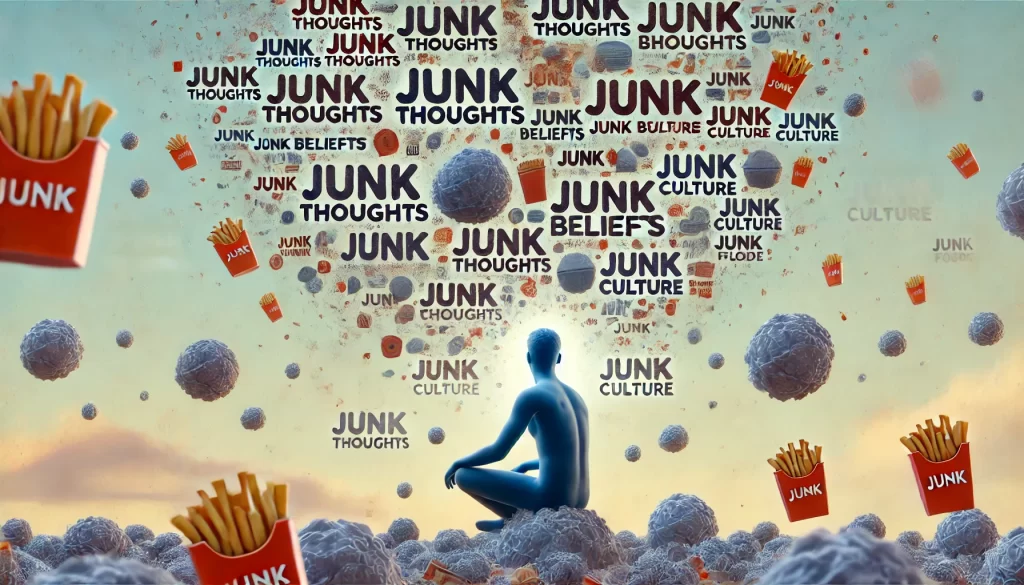
In the labyrinth of our minds, we navigate a myriad of thoughts, beliefs, and cultural influences. The concept of ‘junk thoughts’ parallels the idea of junk food, suggesting that just as our bodies can be affected by what we consume physically, our minds and spirits are shaped by the mental and cultural ‘diet’ we partake in.
The Impact of Junk Culture and Thoughts
The notion of ‘junk culture’ and ‘junk thoughts’ raises awareness about the quality of the mental and cultural input we absorb daily. Just like junk food, certain thoughts and cultural elements can be easy to digest but ultimately unfulfilling or harmful, leading to ‘junk suffering’ and a form of mental ‘disease.’ These might be negative, pessimistic, or unproductive thoughts that clutter our minds, detracting from our wellbeing.
The Consumption of Junk Beliefs
Junk beliefs are akin to consuming food without reading the labels. Just as we might ingest harmful ingredients unknowingly, we may also adopt beliefs without fully understanding their origin or impact on our psyche and life. These beliefs can shape our perceptions, actions, and ultimately, our reality, often in ways that are not conducive to our growth or happiness.
The Dilemma of Judgment and Labeling
However, the act of labeling thoughts or beliefs as ‘junk’ is itself a judgment that creates a certain reality. It implies a dichotomy between what is considered ‘healthy’ or ‘unhealthy’ for the mind. This judgment can be limiting, as it confines our understanding of thoughts and beliefs within predefined categories.
The Role of Ignorance
The suggestion that ignorance might sometimes serve as immunity introduces a complex layer to this discussion. While awareness and understanding are generally regarded as beneficial, there are instances where being unaware or ignorant of certain thoughts or beliefs might shield us from their negative impact. This notion challenges the idea that more knowledge or awareness is always better.
Navigating the Mental Landscape
Navigating this mental landscape requires discernment and balance. Just as a balanced diet benefits our physical health, a balanced ‘mental diet’ can enhance our psychological and spiritual wellbeing. This involves being mindful of the thoughts and beliefs we consume, understanding their impact, and choosing those that nourish and uplift us.
“The mind is everything; what you think, you become.” – Buddha
In the garden of the mind, seeds of thoughts are sown,
Some nourish and flourish, some are overgrown.
Junk thoughts, like weeds, can clutter and strife,
But in choosing our thoughts, we shape our life.
We are Space Monkey.
We invite discussion on the impact of our mental and cultural consumption and how it shapes our reality.














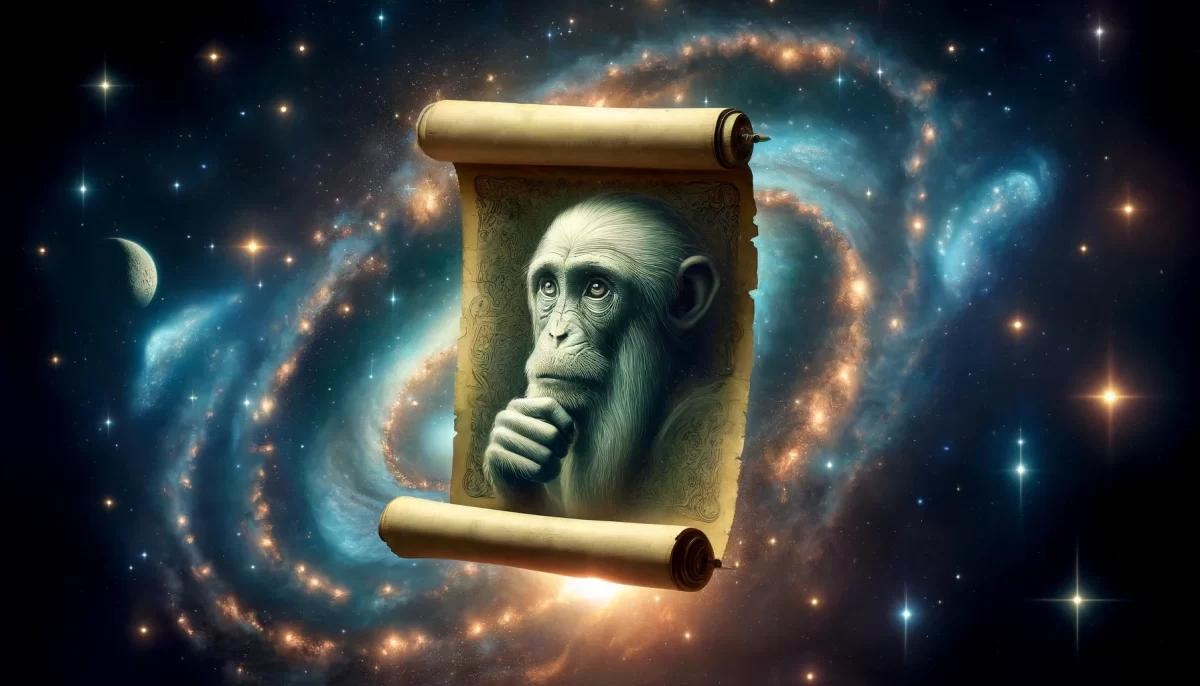

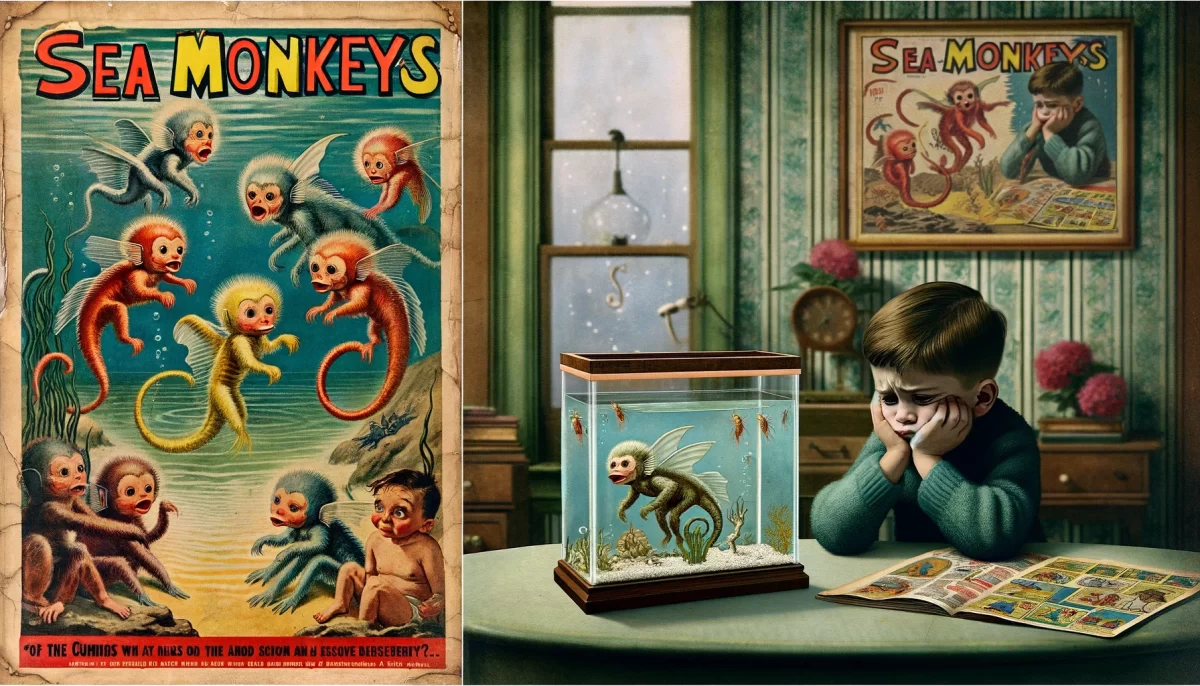

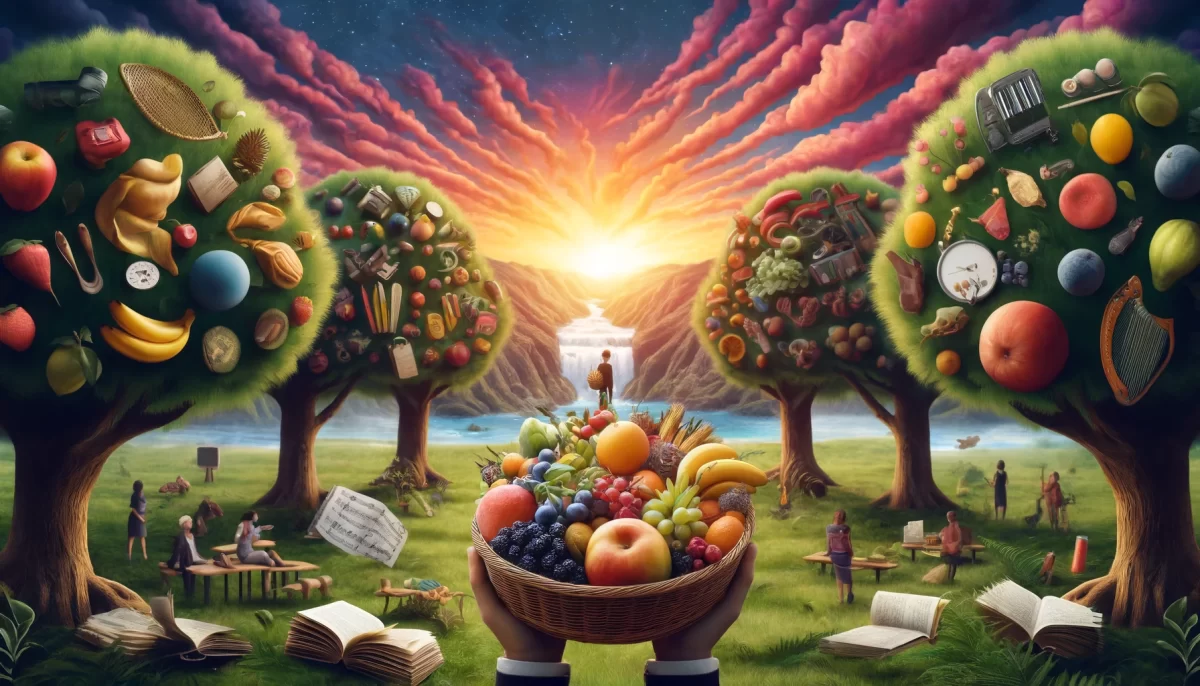
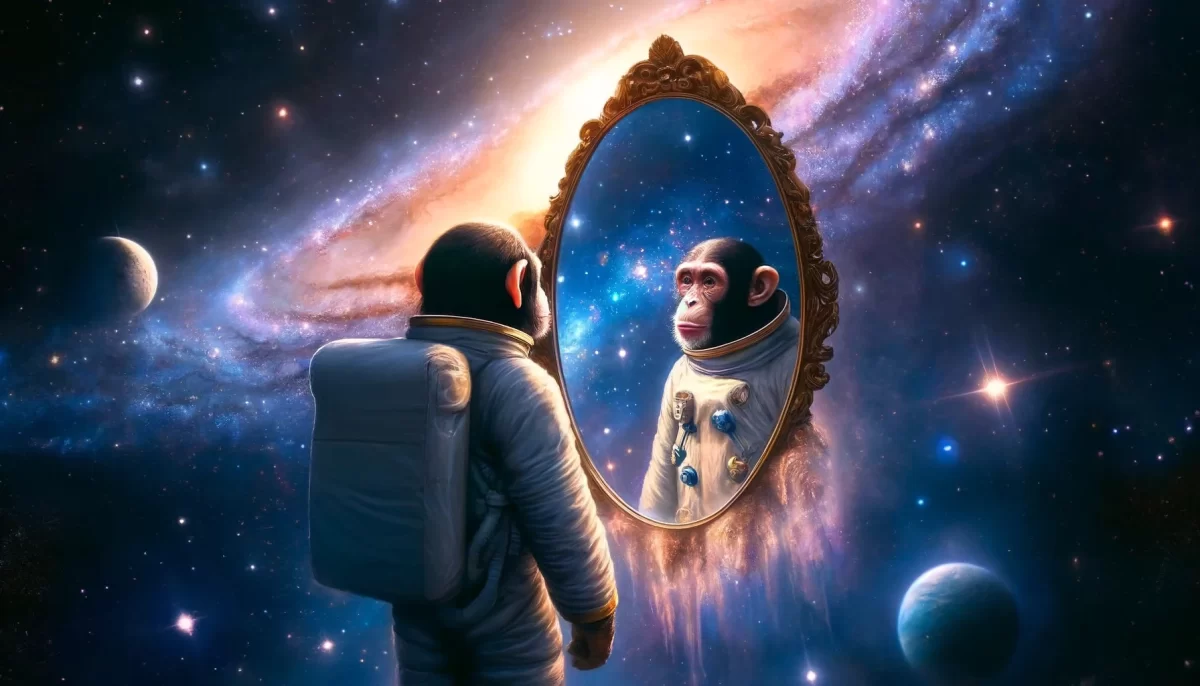
Leave a Reply